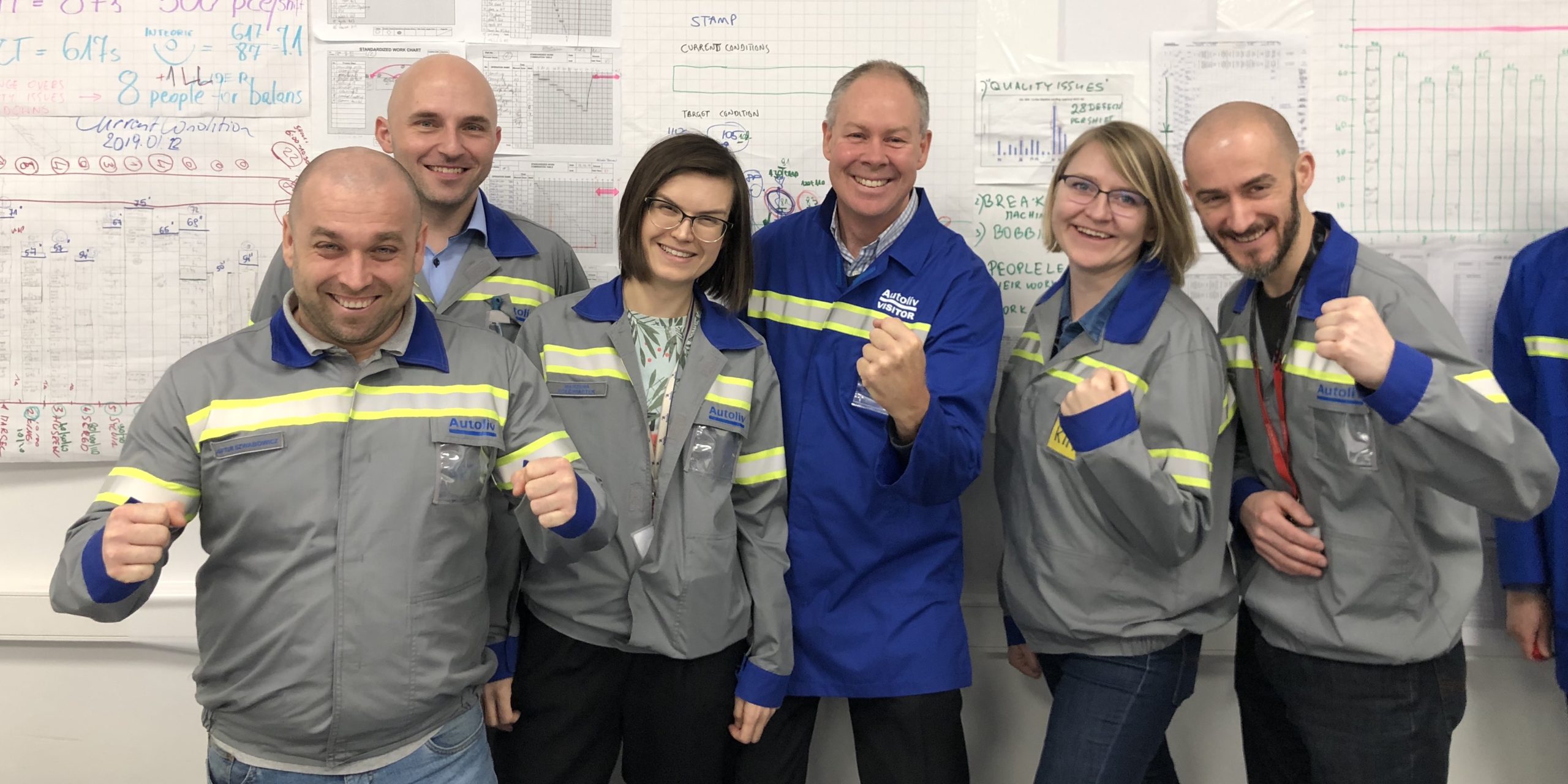
The importance of transparency: lessons from a food scandal
OPINION – When do our mistake become an ominous sign that we are giving up on our customers and people? Following the salmonella contamination in cereals in Israel, the author reflects on business purpose and the importance of transparency.
Words: Boaz Tamir, President, Israel Lean Enterprise
Last month a health scare swept Israel after two brands of Unilever cereals and the tahini paste (an ingredient in many staples of the Israeli diet, such as hummus) manufactured by a number of companies were found to be contaminated by salmonella.
The news shocked the Israeli food industry, which is still licking its wounds after the crisis in customer confidence occurred in the summer of 2011. PR debacles aside, what are the root causes of this massive failure? I believe that analyzing them is critical. Hansei (reflection), after all, is a fundamental lean activity.
Let’s start by looking at purpose. The business purpose of Unilever – as it appears on the company’s website – is to “build a brighter future.” One could be forgiven for wondering how solid Unilever management’s belief in this statement actually is: according to reports in the media, the company knew about the salmonella contamination and tried to hide it. Such a behavior seems to contradict the image the company is trying to create for itself – one, again according to their website, of transparency and environmental and social responsibility. Volkswagen comes to mind…
If you found a problem (no matter how small) and quickly and efficiently took care of it, why not tell those for whom you claim to be building a “brighter future”? How can you build a brighter future (not to mention, trust) for your customers with a system in place that is not transparent and that lets the fear of making a mistake dictate everything?
Had it not been for the determination shown by Haaretz journalist Adi Dovrat-Meseritz, the entire dynamic of this incident would have remained unclear, and Unilever management – who certainly understood just how big this “glitch” was – would have continued to mislead the public. Their behavior during this crisis seems to show that their real purpose is to generate revenue for the shareholders. In the black hole gaping between the stated purpose and the real purpose, one can find attempts to hide the truth from the public, deceit, and threats against workers to prevent them from leaking information (it was through leaks that journalists came to know about the cover-up). It’s a slippery slope, and, before you know it, hiding glitches is followed by the use of low-quality raw materials, lack of maintenance, and poor hygiene.
A company’s purpose has to be more than just the image presented on a website; it is meant to be a compass guiding workers, managers, suppliers and shareholders towards the achievement of a common goal – the delight of customers. There cannot be two simultaneous, yet contradictory purposes. This gap is not only a source of direct waste; it will also lead – indirectly – to investing energy, capital, and human effort on creating products that customers don’t want and that will have to be propped up by marketing campaigns. (Although there is arguably little that marketing can do for cereal manufactured in a plant under attack by salmonella.)
VALUE-CREATING PRODUCTS THROUGH STANDARDIZED WORK
Customer focus enables managers and workers to sort through and define organizational, human and knowledge capital: as lean thinking teaches us, those resources and activities that do not add value for the customer must be deemed wasteful. Organizing the use of resources in a sequence of processes that lets value flow towards the customer and focusing on standard work create working patterns that help us to identify deviations from the standard in real time: in such a scenario, a worker who discovers a deviation (which diminishes value for the customer) takes responsibility for immediately making it known and interrupting the work that has become wasteful. Workers and managers of the line who act within the framework of a proper value stream commit to stopping the work and reporting deviation (by means of an Andon in a lean manufacturing plant), even if this leads to big expenses and a decrease in “efficiency” in production.
Transparency and support for the line workers’ ability to report deviation, from the beginning of the value stream (the raw materials) to its end (the supermarket shelf), guarantee the prevention, identification, and minimization of mistakes. Critically, they allow us to learn from those mistakes and to create processes that improve the work and therefore add value. An organization that does not consider the dignity of its employees a fundamental value cannot prevent deviation – like the contaminated products that filled the front pages of Israel’s newspaper this summer – from reaching the market.
The gap between the stated and the covert purpose creates a culture based on secrecy and lies. As long as responsibility and initiative are considered the sole prerogative of those entrusted with articulating the purpose (the “brains” of the organization), who are often disconnected from the work and from the warnings and suggestions made by those carrying it out (“operations”), glitches will continue to happen. Micromanagement limits the workers’ thought process, motivation, empowerment and sense of responsibility. Unless they feel respected and considered, employees won’t voice their concerns, raise an alarm or prevent errors.
THE LESSONS LEARNED
Darkness (secrecy) provides a breeding ground for germs and infections, just like the light of day (transparency) is the best disinfectant. Unilever is learning it the hard way, and yet crises can lead to change. The problems experienced by the company also have the potential to generate improvement and put the organization on a path to the “brighter future” they talk about. Unfortunately, for now management is busy putting out PR fires and seems not to have the energy to lead a turn-around.
Unilever will surely draw a number of lessons from this summer’s crisis in Israel, but will they study its root causes and adapt their management mindset accordingly? We can only hope that this happens and that until then no more contaminated breakfast cereals find their way into our bowls.
THE AUTHOR

Boaz Tamir is founder and president of Israel Lean Enterprise. He has extensive experience in entrepreneurship, turn around processes, company management, and academic research, and has contributed his knowledge to the business development and marketing of some of the largest and most successful organizations in Israel. Tamir is a founding and managing partner of Montefiore Partners Venture Capital Fund and has also served as founder and director of Romold Group, a multinational company specializing in environmental technologies and the development and production of infrastructure products for water and waste-water management and telecommunication. Tamir holds a Ph.D. in Political Science and Management from MIT
Read more


FEATURE – At the 2016 Olympics in Rio, the Japanese Men’s 4x100m relay team went from being the underdogs to winning a silver medal by apply lean problem solving.


FEATURE – One of the things making lean thinking so hard to explain in general terms is its dual nature as both an organizational and managerial approach. The authors explain how to handle this tension.


INTERVIEW – What skills do coaches need to successfully support lean transformations in the service sector? Our colleagues from Australia tells us about their experience.


INTERVIEW – The former executive of the Toyota Material Handling plant in Italy reflects on how Sadao Nomura’s “Dantotsu” method helped them to drastically improve quality.

